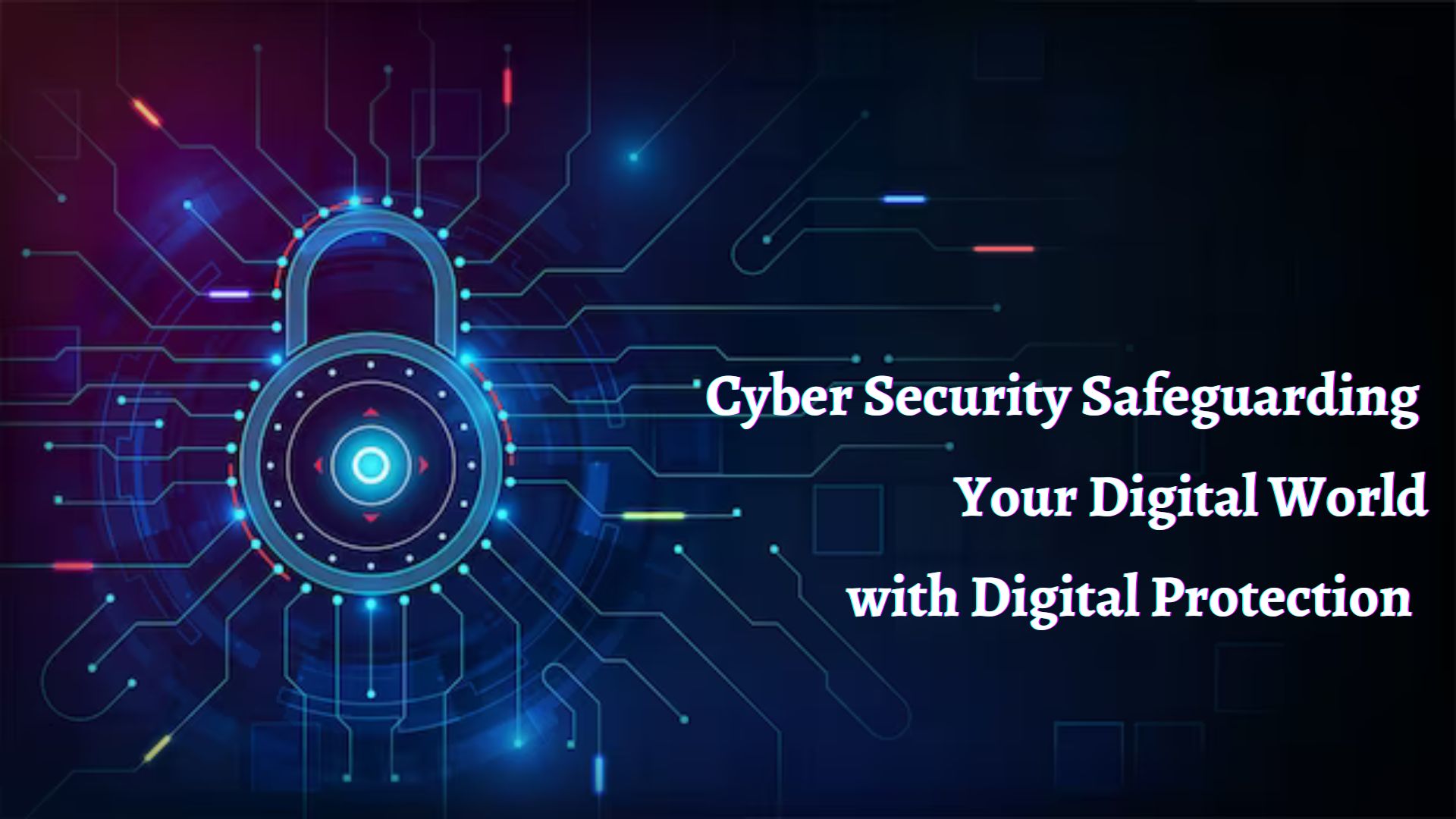
Introduction
In today’s increasingly connected world, where digital technology plays a vital role in our personal and professional lives, ensuring robust cyber security measures is of paramount importance. Cyber security acts as a shield, protecting our sensitive information, online transactions, and digital assets from malicious threats and cyber-attacks. This article explores the significance of cyber security and provides practical tips to enhance your digital protection.
The Importance of Cyber Security
Cyber threats, such as data breaches, identity theft, malware infections, and phishing scams, pose significant risks to individuals, businesses, and governments alike. The consequences of these attacks can be devastating, ranging from financial losses to reputational damage. Therefore, prioritizing cyber security measures is crucial for safeguarding your digital world.
Understanding Common Cyber Risks
- Malware Attacks: Malware, short for malicious software, encompasses various forms such as viruses, worms, and ransomware. These malicious programs can infiltrate your devices and compromise their functionality, steal sensitive information, or demand a ransom for its release.
- Phishing Scams: Phishing involves fraudulent attempts to acquire sensitive information, such as passwords and credit card details, by disguising as trustworthy entities. Cybercriminals often employ deceptive emails, messages, or websites to trick individuals into sharing their confidential data.
- Data Breaches: A data breach occurs when unauthorized individuals gain access to sensitive data, such as personal information or financial records. These breaches can result from vulnerabilities in security systems, human error, or targeted cyber-attacks.
- Identity Theft: Identity theft involves the unauthorized use of someone’s personal information to commit fraud or other criminal activities. Cybercriminals can steal identities through various means, including hacking into databases, social engineering, or exploiting weak passwords.
Effective Cyber Security Practices
- Use Strong Passwords: Create unique and complex passwords for all your online accounts. Include a combination of uppercase and lowercase letters, numbers, and special characters. Avoid using easily guessable information like your name or birthdate.
- Enable Two-Factor Authentication (2FA): Utilize 2FA whenever available, as it adds an extra layer of security. This authentication method requires a secondary verification step, such as a unique code sent to your mobile device, along with your password.
- Keep Software Updated: Regularly update your operating system, antivirus software, web browsers, and other applications. These updates often contain vital security patches that protect against newly discovered vulnerabilities.
- Exercise Caution with Emails and Links: Be wary of unsolicited emails, especially those requesting personal information or containing suspicious attachments or links. Verify the legitimacy of the sender before clicking on any links or providing sensitive data.
- Backup Your Data: Regularly back up your important files and data to an external hard drive, cloud storage, or other secure locations. In the event of a cyber-attack or system failure, you can restore your information without significant losses.
- Educate Yourself and Others: Stay informed about the latest cyber threats and share this knowledge with family, friends, and colleagues. Promote cyber security awareness by educating others about best practices, potential risks, and the importance of staying vigilant.
The Role of Cyber Security Professionals
Cyber security is a complex field that requires specialized knowledge and expertise. Organizations often employ dedicated cyber security professionals to protect their digital assets and ensure the integrity of their systems. These professionals play a crucial role in identifying vulnerabilities, implementing robust security measures, and responding to incidents effectively. By staying updated on the latest cyber threats and employing advanced technologies, they strive to stay one step ahead of cybercriminals.
The Future of Cyber Security
As technology continues to advance, the landscape of cyber security is constantly evolving. New threats emerge, and cybercriminals become more sophisticated in their tactics. To keep up with these challenges, cyber security professionals and individuals alike must remain adaptable and proactive in their approach. Embracing emerging technologies like artificial intelligence and machine learning can help detect and mitigate threats more efficiently.
Conclusion
In today’s digital age, cyber security is a vital aspect of our lives. By understanding the common cyber risks and implementing effective security practices, we can fortify our digital protection and minimize the potential impact of cyber-attacks. Remember to use strong passwords, enable two-factor authentication, stay vigilant against phishing scams, keep your software updated, and educate yourself and others about cyber security best practices. Together, we can create a safer digital environment for everyone.

Add a Comment